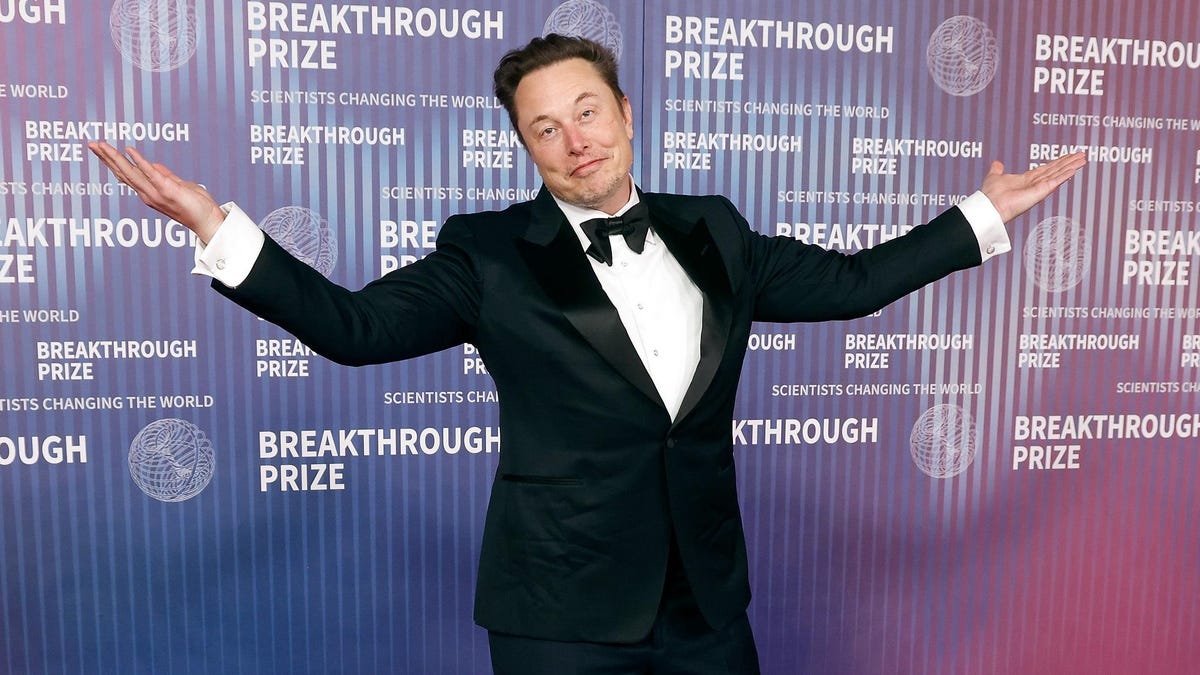Elon Musk shared his dystopian vision for the future on Thursday while remotely joining the Viva Technology Conference in Paris. An audience member asked whether AI would one day replace Musk, expressing real concerns about automation taking jobs—a situation many are already facing. The owner of X, xAI, Tesla, and SpaceX digressed into a spiraling answer straight out of science fiction.
“In a benign scenario, probably none of us will have a job,” said Musk. “But in that benign scenario, there will be universal high income, not universal basic income. There will be no shortage of goods and services.”
Musk continued to describe a scenario he described as “most likely” in which humans live a plentiful life powered by intelligent robot companions. He stated the presence of not just universal basic income, but “universal high income” in a very matter-of-fact way. But in this future, where money and work are no issue, Musk described existential issues where humans lack purpose.
“If a computer and the robots can do everything better than you, then… does your life have meaning? That will really be the question in the benign scenario,” explained Musk.
In the short-term reality, AI is a threat to jobs for low to medium-income individuals. That’s not to say AI can do a job as well as a human, but some execs would like to see it try. Duolingo reportedly laid off several translators as the company shifted towards AI. Nvidia is working with a company to develop AI nurses that cost just $9 an hour to operate. There’s certainly no universal high income, or even much of a social net to help these folks out anytime soon. The billionaire, completely spiraling away from the original question, then noted how humans may create meaning by giving AI systems meaning.
“So if you think about the way that our brain works, we’ve got the limbic system which is our instincts and our feelings, and then we’ve got the cortex which is thinking and planning,” he continued. “But the cortex is constantly trying to make the limbic system happy, so maybe that’s how it will be with AI. The AI is trying to make our cortex happy which is trying to make our limbic system happy, and maybe we are what give the AI meaning, or purpose, or yea so…” Yeah. So…
Musk went on to say this most likely version of reality is based on the Culture series written by Scottish science fiction author Iain Banks. The books describe a socialist society in which a humanoid species and artificial intelligence agents live in relative harmony, creating a “post-scarcity” economy. Musk is often heavily influenced by these 1980s-era science fiction novels—another one he references often is The Hitchhikers Guide to the Galaxy.
At other points during this conference, Musk was dismissive of the only two questions that came from reporters—one from CNBC and one from Business Insider. Musk interrupted the Business Insider reporter mid-question and said, “We can stop the question right now because I don’t think Business Insider is a real publication.”
He ended the talk by saying his biggest fear is, in one word, AI. At other points, he described how his biggest concern with AI is that the systems from OpenAI, Google, and Meta are “not maximally truth-seeking,” and by that, he means they are politically correct. Musk, who not long ago signed a letter to demand a pause on AI development for the greater good, has now joined the rapid AI race with his xAI startup and chatbot, Grok. He considers his startup the one AI company that will save humanity from all the others, but that’s how all the AI startups talk about themselves.

